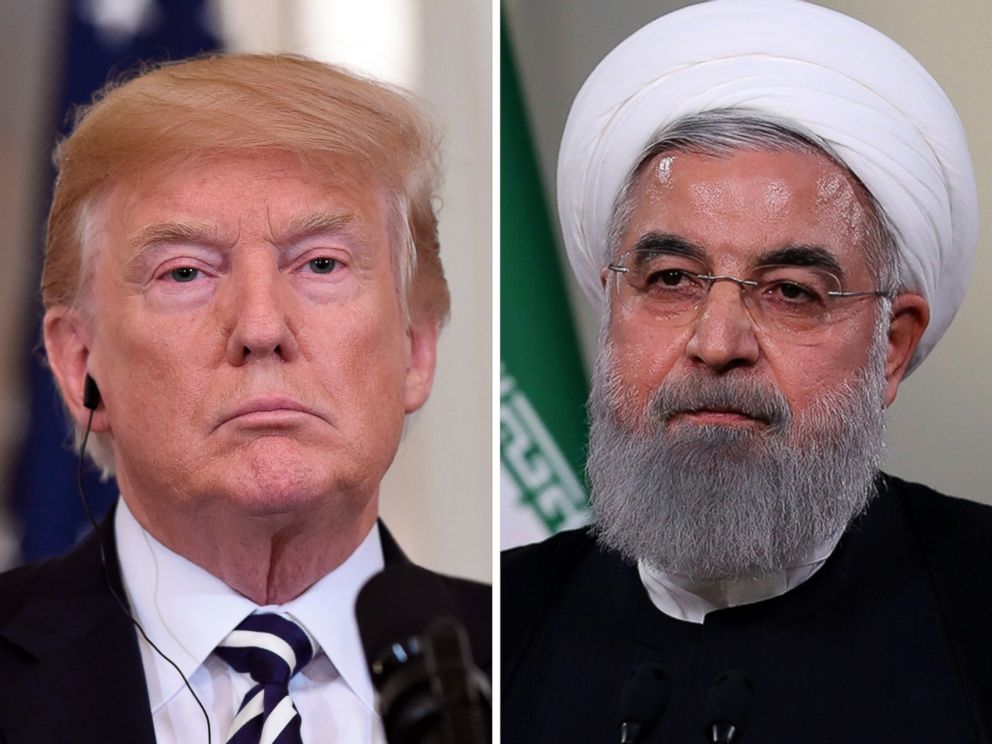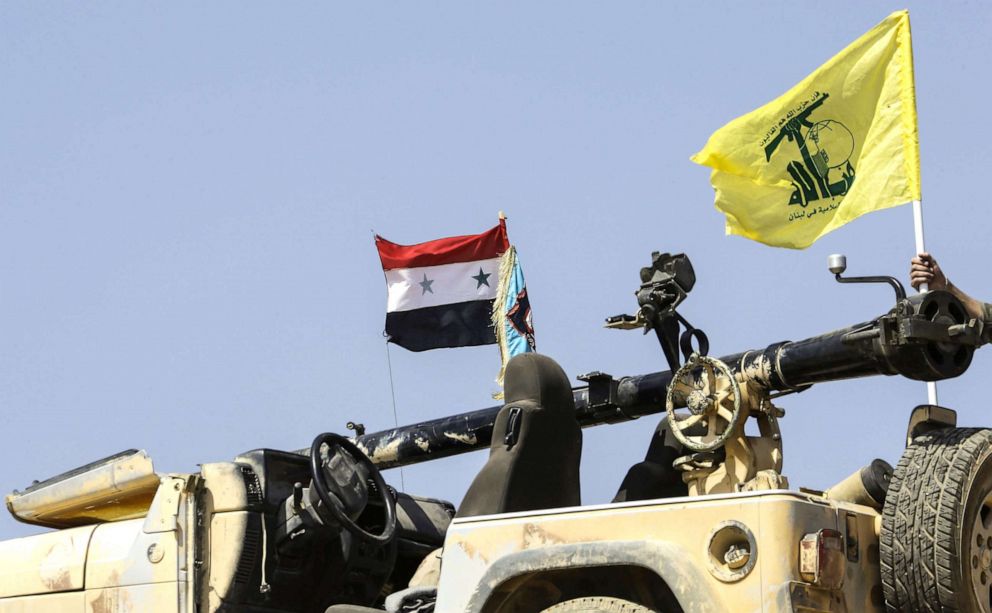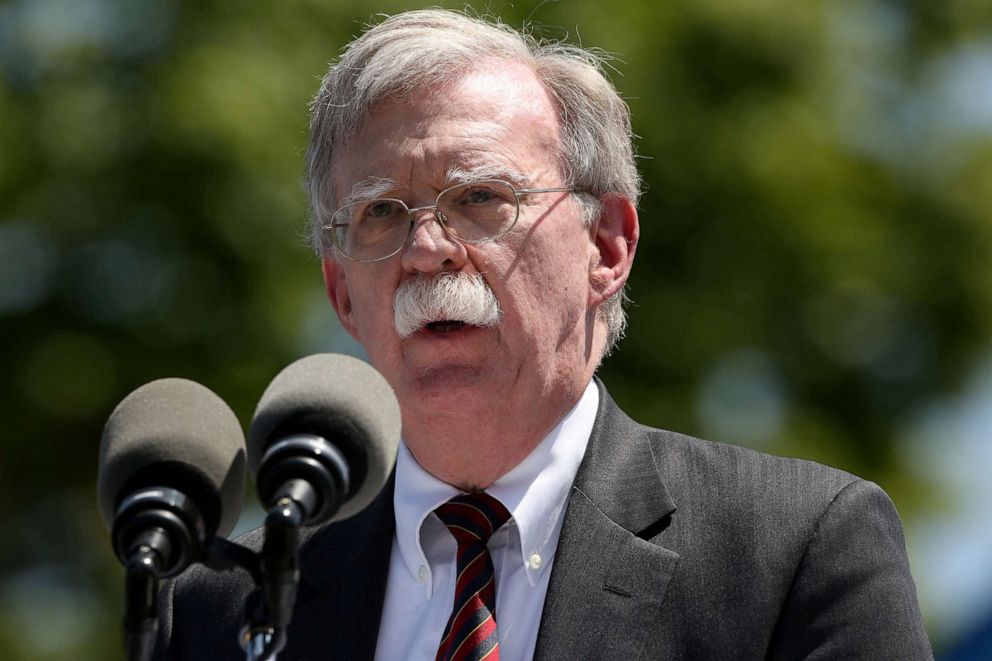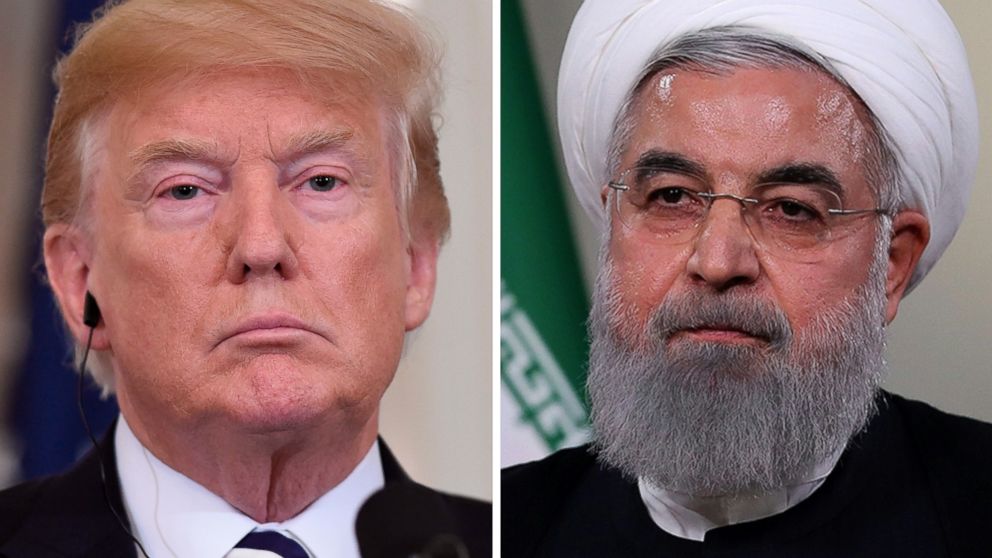US, Iran both say they're willing to talk, on their own terms, amid tensions
Amid heightened tensions and fears of conflict, the U.S. and Iran both said Wednesday that they are open to talks, but only on their own terms – seeming to rule out the possibility unless the other side changed.
The slight opening to diplomacy was a welcome step over the threats of military action that has raised concern for weeks now, but statements on both sides show just how far apart they remain.
The State Department celebrated what it called the success of its "maximum pressure" campaign on Iran, with spokesperson Morgan Ortagus saying the country's allies in the Middle East are all being forced to cut back. In particular, the Lebanese militant group Hezbollah has begun to recall fighters from Syria and cut their salaries, according to Ortagus, while the Palestinian militant group Hamas has imposed "austerity" measures and the Syrian regime of Bashar al Assad has faced a fuel crisis.

"We will continue to apply maximum pressure on the Iranian regime to deny it the means to conduct its destructive foreign policy and compel the regime to negotiate a comprehensive new deal that addresses the full scope of its malign behavior," she added.
But while the U.S. celebrates that pressure, Iran said such actions are exactly why its government will not negotiate with the administration of President Donald Trump, even after he expressed interest Monday in talks.
"We won’t negotiate with Americans. Because there’s no use negotiating and it’s even harmful," said Iran's Supreme Leader Ayatollah Khamenei in a tweet. "Our only option is to use [our] means of pressure in the face of U.S. pressures."
Those comments came hours after Iranian President Hassan Rouhani said the "road" to talks is "not closed" – but under one precondition.
"The road is not closed for them, whenever they put aside their cruel sanctions and return to the negotiation table that they left," he said, calling on the U.S. to return to the nuclear deal, formally known as the Joint Comprehensive Plan of Action, or JCPOA.

While Ortagus said Trump administration officials "concur" and "agree," she inserted America's own vision of the path to talks.
"I see 12 ways forward," she said, a reference to the list of steps Secretary of State Mike Pompeo called on Iran to take after the administration announced it would withdraw from the JCPOA last May. The list includes ceasing any nuclear enrichment, ballistic missile testing, and support for terror groups in the region, including Hezbollah and Hamas.
"There is a path forward, and we will talk tomorrow if they would like to see the bright future that we believe is there for the Iranian people," Ortagus added. She declined to say whether those 12 steps were a precondition for talks, or whether the U.S. would engage Iran to work towards those steps.
But she made clear the demands are non-negotiable: "Have you met Mike Pompeo? Do you think these 12 are debatable?" she told reporters during her first department briefing.

President Trump, however, seemed to have a lower threshold for meeting, saying Monday in Tokyo, "I'm not looking to hurt Iran at all. I’m looking to have Iran say, 'No nuclear weapons'... Iran has tremendous economic potential, and I look forward to letting them get back to the stage where they can show that."
In the meantime, there are no plans or discussions of back channel or indirect talks, Ortagus said.
Perhaps it's because of the president's apparent flexibility in meeting with Iranian officials that some of his advisers are speaking out and blaming Iran for hostilities in the region. National Security Adviser John Bolton said Wednesday in the United Arab Emirates that Iran was behind an attempted attack on the Saudi oil port of Yanbu and accused the Iranian government of pursuing nuclear weapons – something it has denied, in particular, because they say it is religiously prohibited.
Saudi Arabia will host Gulf Arab countries for two emergency meetings on Thursday in the Muslim holy city of Mecca to discuss the Iranian threat – which has also prompted the Pentagon to move 1,500 additional U.S. troops to the country and neighboring Qatar, according to acting Defense Secretary Patrick Shanahan.




